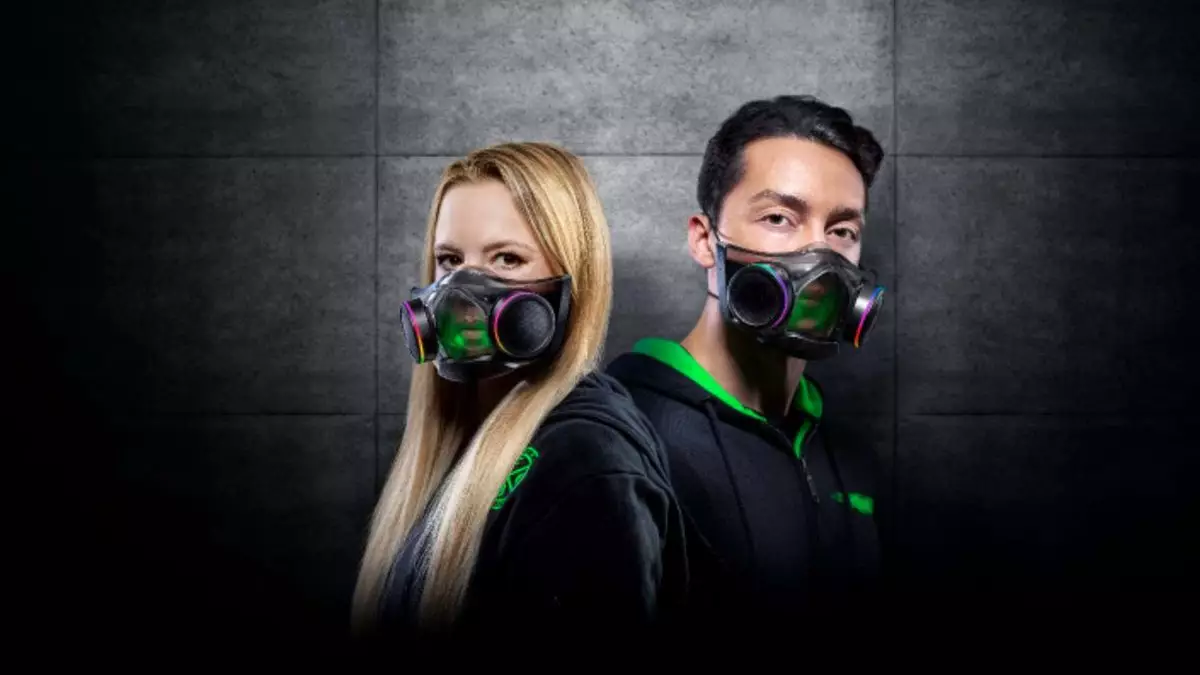The Covid-19 pandemic has pushed many industries to adapt and innovate, none more so than the health and wellness sector. Amid this chaos, Razer, a prominent gaming hardware manufacturer, took an unexpected step into the realm of personal protective equipment (PPE) with the launch of its Zephyr mask. This article explores the initial appeal, subsequent controversies, and eventual fallout surrounding the Zephyr mask, ultimately evaluating how misleading marketing practices can tarnish a brand’s reputation.
Razer launched the Zephyr mask in 2021, marketing it as a stylish and technologically advanced accessory that appealed to gamers and everyday users alike. Boasting RGB lighting and a sleek design, the mask seemed perfect for the gamer aesthetic that many craved during the pandemic. Priced at $100, it offered an enticing proposition of style blended with safety. However, what captured attention most were the purported N95 filters, which led consumers to believe they were investing in a product that offered a high level of respiratory protection.
Razer’s early promotional materials were ambiguous at best. The implication that the Zephyr could provide N95-level protection played a significant role in its attractiveness. Unfortunately, the reality fell short. Soon after launch, it became evident that Razer had overstated the capabilities of the mask. The company backtracked, revealing that the Zephyr was neither a medical device nor certified as an N95 mask, leading to widespread disillusionment.
By April 2024, concerns surrounding Razer’s marketing practices culminated in a lawsuit filed by the Federal Trade Commission (FTC). The company agreed to a settlement, which included a $100,000 fine and an astonishing $1,071,254.33 designated for consumer refunds. This financial fallout is indicative of a larger issue: that of misleading marketing and inadequate consumer protections.
The FTC findings were alarming. They revealed that Razer had not even sought necessary certifications from the FDA or the National Institute for Occupational Safety and Health (NIOSH), thus showing a blatant disregard for consumer safety in the pursuit of profit. While Razer did implement a refund policy, the FTC’s investigation unveiled that fewer than 6% of customers who sought refunds actually received them. The inadequate handling of refunds, combined with the deceptive advertising, has led to a breach of trust with consumers.
The fallout from the Zephyr mask serves as a crucial lesson about consumer trust. Many customers found themselves confused or deterred from seeking refunds due to the misleading communication from Razer’s customer service representatives. Reports indicated that consumers were outright denied refunds for reasons such as past usage of the mask or lapsing the strict 14-day return policy. Such practices not only demonstrate poor customer service but also highlight a concerning trend of companies failing to take accountability for their products.
As a consumer who valued safety and style equally during the pandemic, the handling of the Zephyr mask was particularly disappointing. A high-quality, reusable mask remains a necessity for many, especially for those, like myself, who prioritize both function and fashion in protective gear. The excitement around the Zephyr should have been a stepping stone towards innovation in PPE; however, this potential was squandered by the company’s mismanagement.
The Zephyr mask’s failure encapsulates a broader issue within the marketplace—companies must be transparent and responsible in their marketing practices, particularly during a global health crisis. While consumers are constantly seeking reliable and stylish health products, misleading claims can lead to disillusionment and anger, as seen in Razer’s case.
This incident is a reminder of the importance of ethical marketing and the need for firms to prioritize consumer welfare over profit margins. Razer had a unique opportunity to lead the charge in creating a functional and fashionable PPE solution but instead found itself mired in controversy and legal ramifications. Moving forward, it is crucial that companies learn from these mistakes to build a better, more transparent relationship with their customers, ensuring that innovations in health and wellness truly serve the needs of society.


Leave a Reply